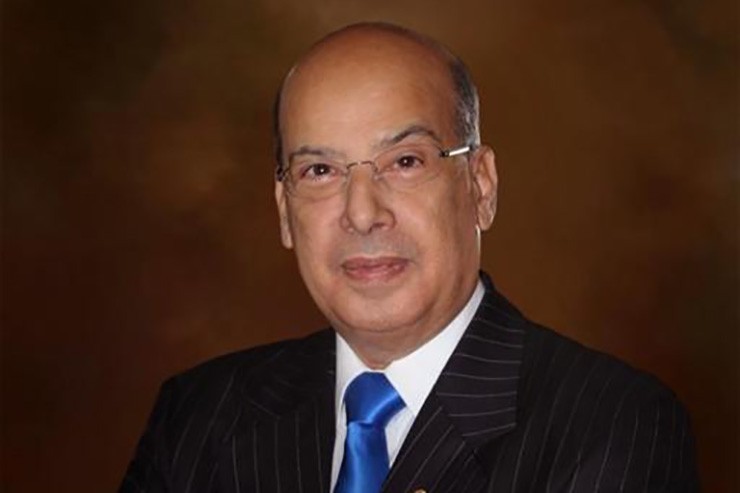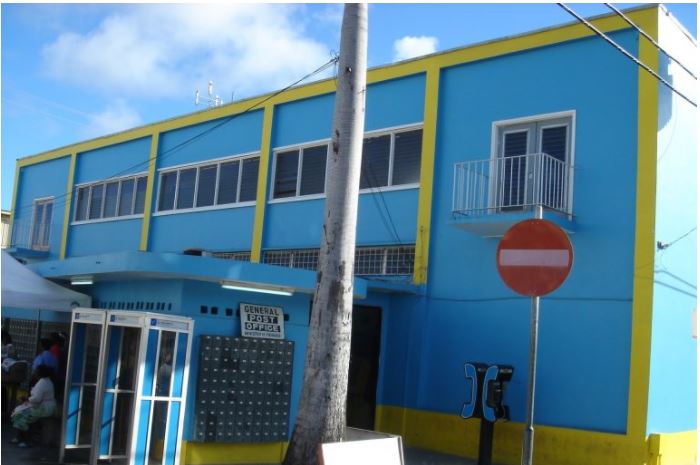By Sir Ronald Sanders
(The writer is Antigua and Barbuda’s Ambassador to the US and the OAS. He is also Senior Fellow at the Institute of Commonwealth Studies, University of London and Massey College in the University of Toronto. The views expressed are his own)
On October 12, more than a dozen representatives in the US Congress sent a letter to the US Trade Representative, Katherine Tai, asking for immediate attention to what they describe as “the growing influence of the Chinese Communist Party in both Latin America and the Caribbean trade and economic development”.
The US Congresspersons have come to this realization years after Caribbean representatives in Washington – me included – have been saying to successive US Governments and Congress that the US has been absent as a meaningful contributor to the Caribbean development for almost two decades.
The vacuum that the US left has been filled by the People’s Republic of China, and it would be unreasonable for the US government or Congress to expect Caribbean countries to defer or delay their urgent development needs, waiting for the US to refocus its attention on the region.
Further, the terms of China’s loans to many Caribbean nations have been far more concessionary even than World Bank and IMF loans to lower and lower middle-income countries, and China does not use per capita income as a criterion for disqualifying high income but vulnerable and underdeveloped Caribbean countries, from eligibility for loans and grants.
US Congress persons and US government policy makers should take these realities into account when they say, as they did to the US Trade Representative, “Economic prosperity and solidified trading relationships is slowing, becoming a matter of national security.”
Caribbean countries do not regard the loans and other economic arrangements they have with China as a threat to US national security, and no member state of CARICOM has put any policies or programmes in place that affect US national security. Indeed, CARICOM countries have remained faithful to importing goods and services from the US, even though US assistance and investment in the sub-region has steadily declined.
Here are a few facts of which the 13 US Congress persons, who signed the 12 October letter, appear to be unaware. First, with the exception of Haiti (which for the US is a special case), the 14-nation independent states of the Caribbean Community have been at the bottom of US official development assistance for decades. In 2019, for instance, total US foreign assistance globally was US$47 billion, of which all CARICOM countries received US$338 million or 0.7%. For emphasis, that is less than 1% of the global total. Haiti alone received US$268 million of that US$338 million delivered to all 14 CARICOM states, leaving the other 13 to share US$70 million only. For nine of the 13 countries, the sum provided did not amount to US$1 million.
On trade, the US remained the dominant trading partner of CARICOM states, enjoying a trade surplus of US$6.5 billion. So, while it is factual that trade between Caribbean countries and China has increased in recent years, no trade in goods with the US was displaced, and certainly no trade in services. And, on foreign assistance to the region, if China is now delivering more to the Caribbean than the US, it should hardly be a matter of complaint by the US.
Among the references made about China is that its representatives use sharp practices in negotiating contracts with Caribbean countries which could lead to seizure of vital infrastructure should defaults occur on repayment of loans. These references suggest that representatives of Caribbean countries lack the skill to negotiate contracts that are in their interest – an assertion most CARICOM governments would reject. It also suggests that CARICOM countries have not encountered similar practices from other countries that have led to uneven contracts – the Economic Partnership Agreement between the European Union collectively and each CARICOM country individually being a case in point.
What US policy makers should regard as undeniable is that China is giving more scholarships to Caribbean students to upgrade their knowledge and capacity than the US. In fact, the US poaches Caribbean doctors, nurses and teachers – trained at great expense by Caribbean taxpayers. In the end, if the US continues this practice, they will have only themselves to blame if the Caribbean professionals and influencers of the future know China better than the US.
To be sure, the 13 Congress persons who wrote to the USTR were more concerned about China’s relationship with the bigger countries of Latin American than they were about the Caribbean. The Caribbean is usually a forgotten appendage to Latin America among most US policy influencers, including its think-tanks. It is that concern about loss of trade benefits and influence over Latin American markets that caused them to say, “We believe that it is of the highest priority for the US to keep its relationships strong with our neighbors in the Western Hemisphere. Before long, China will be significantly positioned to completely dominate Western Hemisphere economics, as China is already the top trading partner for practically all of Asia, Oceania, Eastern Europe, Africa and, as stated, most of South America.”
If China comes to dominate Western Hemispheric economics, it will be because of a long period of US neglect and the slow process to recognising that the US must re-engage Latin America and the Caribbean in genuine cooperation and not with one-sided strategies that are long on words, but short on allocation and delivery of funds.
In any event, Latin American and Caribbean countries, concerned about improving their economies and advancing the social and economic conditions of their peoples, do not subscribe to a rivalry between China and the US in their region and hemisphere. They would all declare that there is ample room for economic and other forms of mutually beneficial cooperation with both China and the US.



















